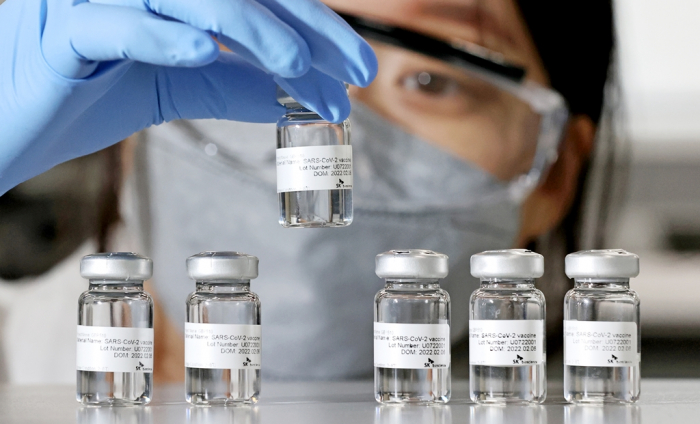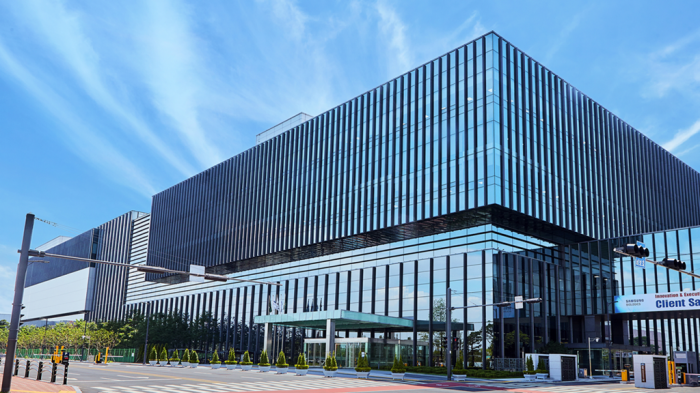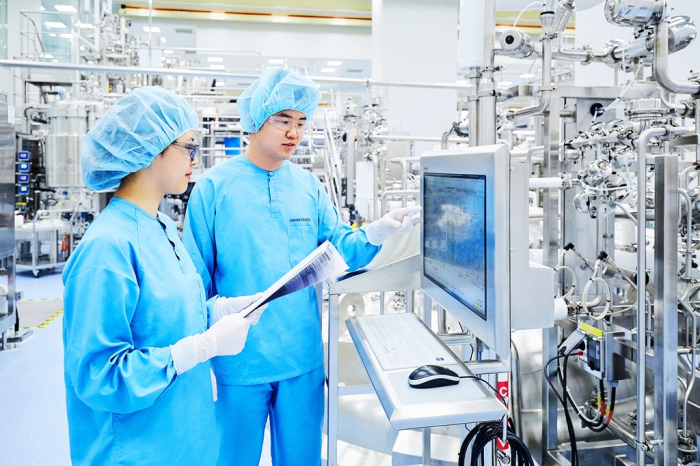Bio & Pharma
K-bio firms embrace gene therapy CDMO as Samsung looks the other way
Instead of organic growth, Samsung is chasing the fast-growing segment through M&As, industry officials say
By Aug 05, 2022 (Gmt+09:00)
3
Min read
Most Read
LG Chem to sell water filter business to Glenwood PE for $692 million


KT&G eyes overseas M&A after rejecting activist fund's offer


Mirae Asset to be named Korea Post’s core real estate fund operator


StockX in merger talks with Naver’s online reseller Kream


Meritz backs half of ex-manager’s $210 mn hedge fund



South Korea’s major biopharmaceutical companies are rapidly embracing the cell and gene therapy business under a contract drug-making mechanism while Samsung Biologics Co. remains lukewarm toward the emerging therapeutics segment.
Samsung, the world’s largest contract drugmaker, is reviewing its earlier plan to build a multimodality factory, its fifth plant, in Songdo, near Seoul, to produce gene therapy drugs, people familiar with the matter said on Friday.
The company has scrapped the plan and instead decided to build another antibody therapies factory on its second bio campus in addition to four such plants on its first bio complex in Songo, the people said.
The decision comes as Samsung deems the cell and gene therapy market not yet sufficiently mature to launch a business for large-scale production and profit, they said.
The biotechnology unit of Korea’s top conglomerate Samsung Group said last month it plans to double its manufacturing capacity by building four additional plants worth 7 trillion won ($5.3 billion) to solidify its leadership in the contract development and manufacturing organization (CDMO) market.
As part of the plan, it clinched a 426 billion won land purchase contract to build its second bio campus inside the free economic zone in Songdo, Incheon, west of Seoul.

John Rim, chief executive of Samsung Biologics, told reporters in June that several biopharmaceutical companies are putting their newly built cell and gene therapy drug plants up for sale as marketing opportunities are too slim to make money now.
Industry watchers, however, said they don’t expect Samsung to drop the gene therapy business but will seek to foster it through acquisitions of bio startups specialized in cell and gene therapy treatment.
In March, Samsung Biologics and Samsung C&T Corp., operators of the 150 billion won Samsung Life Science Fund, said they made an equity investment in Illinois-based Jaguar Gene Therapy LLC.
SK MOST ACTIVE WITH GENE THERAPY AMONG KOREAN FIRMS
Unlike Samsung, SK Group is the most active among Korean big companies seeking to expand their cell and gene therapy business.
In March of last year, SK Inc., the holding and investment company of SK Group, acquired a 70% stake in Yposkesi, a French bio contract manufacturing organization (CMO), to advance into the cell and gene therapy business.

Yposkesi, now an affiliate of SK Pharmteco, SK Group’s CMO holding company, specializes in advanced cell therapies.
SK Bioscience Co., another SK Group subsidiary, is also seeking multi-billion-dollar M&As to expand its business portfolio from contract manufacturing to gene therapy development.
Other Korean companies that are joining the gene therapy market include GC Cell Co., Medipost Co. and Kangstem Biotech Co.
Gene therapy is a technique of inserting a gene transfer into a patient’s cells to treat a disease or a process of replacing defective genes with healthy ones. It is regarded as a revolutionary approach because it aims to treat complex diseases by regulating gene expression, prompting global pharmaceutical companies to invest heavily.
The segment accounts for over 50% of 1,800 biologics pipelines under clinical development in advanced nations annually.
According to global consulting firm Deloitte, the gene and cell therapy market is expected to grow at an average annual rate of 25% until 2025 and surpass antibody therapies, currently the largest bio market.
Write to Jae-Young Han at jyhan@hankyung.com
In-Soo Nam edited this article.
More to Read
-
 Bio & PharmaSamsung Biologics to double CDMO capacity with new plants worth $5.3 bn
Bio & PharmaSamsung Biologics to double CDMO capacity with new plants worth $5.3 bnJul 18, 2022 (Gmt+09:00)
2 Min read -
 Bio & PharmaSamsung Biologics signs $81 mn CMO deal with Novartis
Bio & PharmaSamsung Biologics signs $81 mn CMO deal with NovartisJun 07, 2022 (Gmt+09:00)
1 Min read -
 Bio & PharmaSamsung’s Life Science Fund invests in US biotech Jaguar Gene Therapy
Bio & PharmaSamsung’s Life Science Fund invests in US biotech Jaguar Gene TherapyMar 30, 2022 (Gmt+09:00)
2 Min read -
 Bio & PharmaSK Bioscience seeks multi-billion-dollar M&As, eyes gene therapy sector
Bio & PharmaSK Bioscience seeks multi-billion-dollar M&As, eyes gene therapy sectorMar 31, 2022 (Gmt+09:00)
3 Min read -
 COVID-19Samsung Biologics-made Moderna vaccine available to Koreans this week
COVID-19Samsung Biologics-made Moderna vaccine available to Koreans this weekOct 27, 2021 (Gmt+09:00)
3 Min read
Comment 0
LOG IN


